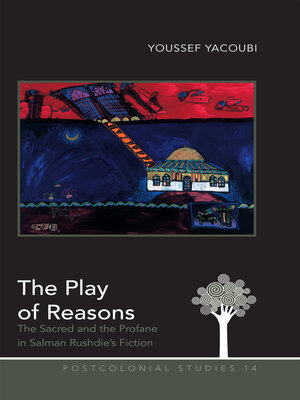The Play of Reasons
ebook ∣ The Sacred and the Profane in Salman Rushdie's Fiction · Postcolonial Studies
By Maria C. Zamora

Sign up to save your library
With an OverDrive account, you can save your favorite libraries for at-a-glance information about availability. Find out more about OverDrive accounts.
Find this title in Libby, the library reading app by OverDrive.



Search for a digital library with this title
Title found at these libraries:
| Library Name | Distance |
|---|---|
| Loading... |
The Play of Reasons argues that Salman Rushdie's eclectic and hybridized work can be situated within an Islamic genealogy of theological and literary traditions. Rushdie's prose is difficult to conceive as unitary in meaning precisely because it operates according to a polymorphous Islamic literary and theological register, while also being divided by the Greek, Abrahamic, and Indian dimensions. There is a parallax when Rushdie is viewed from within Islamic traditions, creating interest in a certain postcolonial saturation of Islamic literary traces, theological, and political anxieties; closures and ruptures of the sacred and the profane. Rushdie's writing is neither essentially Islamic or Indian, nor essentially Western or Greek, but to read him, in terms of an Islamic tradition, is an intervention in what the author calls «Diasporic criticism.» Rushdie's work construed as «a kind of philosophy-in-literature» foregrounds an engagement with a number of Muslim «masters of suspicion» (classical and modern), whose literary and philosophical ideas have been deeply immersed in the limits of tradition. In the final analysis the author argues that Rushdie's prose demonstrates the extent to which literature is committed to a critical reconceptualization of history, truth, meaning, and value systems based in the possibilities of risk, constructive doubt, and contingency.







